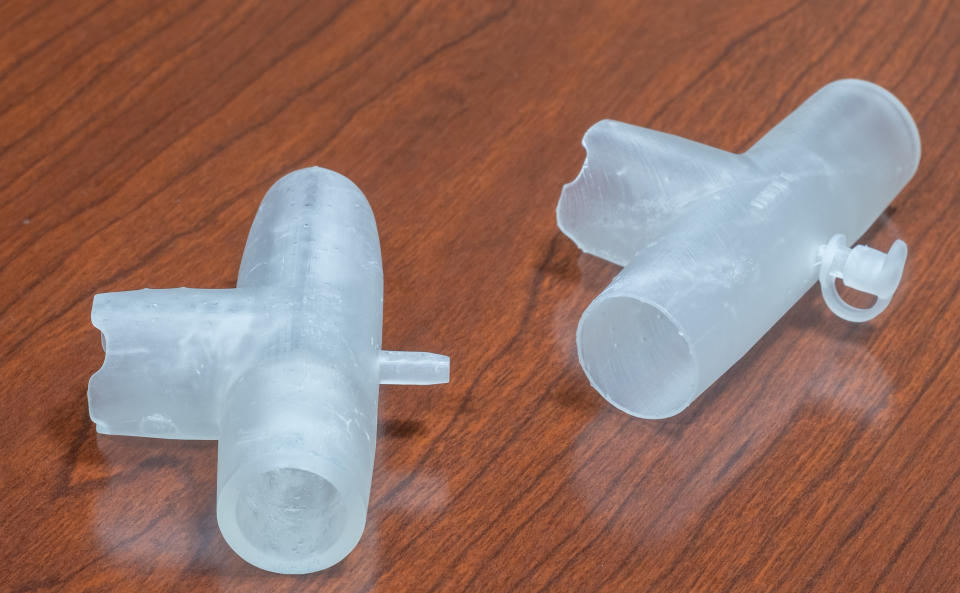FDA clears Formlabs' 3D-printed BiPAP-to-ventilator converter
Hospitals can now 3D-print the small, plastic T-shaped adapters.
In the race to provide the ventilators needed to treat COVID-19, several companies have developed new devices. But there may be a simpler approach. Formlabs has received an emergency use authorization (EUA) from the FDA to 3D-print small adapters that can turn existing sleep apnea machines into ventilators. Formlabs is now shipping the adapters throughout the US and hospitals can print their own.
The small, plastic T-shaped adapters were developed by Northwell Health, New York's largest healthcare provider. They were used to provide life-saving care to COVID-19 patients in New York City. Thanks to this EUA, other hospitals can now 3D-print the adapters and use them with existing bi-level positive airway pressure (BiPAP) machines.

For hospitals that might not be able to print their own, Formlabs is using 150 3D printers at its Massachusetts headquarters to print the adapters. Once production is fully ramped up, the company expects to print up to 3,000 parts per day.
“Formlabs’ EUA for BiPAP adapters signifies the need for these components and 3D printings' unique ability to fill that need. 3D printing enables rapid iteration and prototyping of new, innovative medical equipment, while expediting the production process, shortening supply chains, and allowing for localized manufacturing,” said Max Lobovsky, Formlabs CEO and co-founder.
Lobovsky noted that prior to the COVID-19 pandemic, the FDA had only authorized a handful of EUAs. In March, Abbott received the rush-approval for its toaster-sized lab-in-a-box, and recently, NASA’s ventilator design was approved through the fast-track authorization.
While companies from Tesla to Dyson and NVIDIA have explored new ways to manufacture ventilators, pivoting manufacturing to make the devices is difficult and requires a lot of expertise. Plus, all ventilators have to clear regulatory hurdles and require creating new supply chains. Solutions like Formlabs’ adapter and right-to-repair efforts to prolong the life of existing equipment may be more practical.
